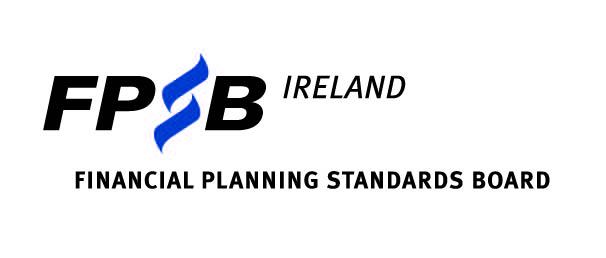Financial Advisor and Planner Qualifications
In our industry, as we start out and move through our careers, we pick up numerous abbreviations after our name.
Importantly, these are a result of the qualifications we pick up.
Take me, I have CFP®, SIA, RPA, QFA, Grad Dip.
However, what do they actually mean?
A long-standing client asked me this in the course of a conversation recently.

This then got me thinking.
If you’re not involved in our industry how would you know?
So, I’ve decided to cover some of the more common qualifications.
Furthermore, this will also give you some information to think about.
Stuff to consider if you are considering working with us or any other advisor.
QFA – Qualified Financial Advisor
Firstly, let’s start at the beginning.
The QFA is the entry-level qualification for anyone advising.
This meets the Central Bank of Ireland’s Minimum Competency Code (MCC).
It is a level 7 qualification in the National Framework of Qualifications.
The QFA comprises six modules:
- Pensions
- Life Assurance
- Regulation
- Loans
- Investment
- Financial Advice
This qualification can be attained via the Life Insurance Association of Ireland (LIA).
It can also be obtained with the Institute of Banking (IOB).
No one can be a financial advisor and advise a client without the full QFA status.
RPA – Retirement Planning Advisor
The next step up is the RPA.
Certificate in Retirement Planning Advice.
The RPA is a step up in pensions and retirement knowledge from the QFA.
Particularly, the RPA focuses on pensions and retirement planning only.
This is undoubtedly an important qualification for anyone advising clients on pensions.
Without a doubt taking the individual’s knowledge beyond the Minimum Competency Code requirements.
Some of the areas this course covers:
- Proprietary Directors
- Sole Traders
- Employees
- Leaving Service
- Pension Adjustment Orders
- Retirement Benefit Options
This is a two-module course provided by the Life Insurance Association of Ireland (LIA).
Furthermore, to study for the RPA you must hold the Qualified Financial Advisor designation.
Unlike the QFA, this certificate is optional.
Finally, like the QFA, this is a Level 7 Qualification.
SIA – Specialist Investment Advisor
Unlike the QFA and RPA, we are now moving up a gear.
Indeed, the SIA is a Level 9 Qualification.
In addition to the QFA, the SIA broadens one’s knowledge of investment management.
It is clearly designed for anyone who wants to take their knowledge beyond Minimum Competency Code (MCC), entry-level requirements.

Moreover, the LIA who provides the course, describe it as follows:
‘essential learning for anyone involved in advising clients on investments’.
On the other hand, it’s completely optional.
In contrast to the QFA, unfortunately, an advisor doesn’t have to undertake this.
Graduate Diploma in Financial Planning
Along with the SIA, this is a Level 9 qualification.
Without a doubt, this qualification is designed to be more practical, relevant and immediately transferrable to our everyday work.
Firstly, the postgraduate is an 18-month programme.
Also, consisting of six modules:
- Principles & Practices of Financial Planning
- Risk Management & Insurance Planning
- Investment Management
- Tax & Estate Planning
- Retirement Planning
- Integrated Financial Planning
A course is designed to take one’s knowledge to the highest international standards.
CFP® Certified Financial Planner™ Certification
CFP® status is the gold standard of financial planning.
Not just locally in Ireland, but globally.
CFP® professionals meet rigorous education, experience, training & ethical standards.
They are committed to serving their clients’ best interests.

In addition to the Graduate Diploma, candidates must pass a comprehensive CFP certification examination.
This rigorously tests their ability to apply knowledge to real-world client situations.
The CFP examination covers:
- The financial planning process
- Tax Planning
- Financial & Risk Management
- Investment Planning
- Retirement Planning
- Estate Planning
The CFP examination is importantly administered by the Financial Planning Standards Board Ireland (FPSB).
Importantly, once complete, CFPs are licensed by the FPSB.

Furthermore, candidates must agree to abide by a strict code of ethics.
These define ethical responsibilities to the public, clients and employers.
In order to achieve CFP® status, candidates must hold the Qualified Financial Advisor designation.
Secondly, the Graduate Diploma in Financial Planning.
Thirdly, they must have a minimum of three years experience in personal financial planning.
As mentioned, this is the highest standard of excellence on a global scale.
Continuing Professional Development (CPD)
In addition to exams and qualifications, we have rigorous CPD requirements.
Firstly, for the LIA to maintain our Qualified Financial Advisor designation.
Importantly, we have to complete a number of hours CPD.
Secondly, for the FPSB.
To maintain or CFP® certification.
Unlike QFA CPD, for the FPSB we have two types of CPD hours.
Formal & Informal.
I won’t bore you with the difference!!
Summary
I hope this has given you a bit of insight into some of the industry’s qualifications.
Importantly, if you’re a client, or considering working with us, my qualifications.
Without a doubt, when choosing an advisor, it’s important to know their accreditations.
As outlined above, entry-level is the QFA.
Nevertheless, the industry has evolved considerably.
The standards of knowledge, experience and practical application considerably differ between the QFA entry-level & CFP®.
Therefore, the unwritten entry level for working with an Advisor is now the CFP®.
In order to ensure the highest level of advice, one should be working with a CFP®, not just a Qualified Financial Advisor.
As outlined, a QFA simply meets Minimum Competency requirements.
On the other hand, however, the consumer still has to be wary.
Numerous companies in our industry still advertise advisor roles as ‘Sales Roles’.
More commonly, these are larger, corporate companies.
The issue here, is these advisors have sales targets to meet.
Undoubtedly, this then creates a conflict of interest.
What’s best for the advisors’ sales target versus what’s best for the client?
Typically, a client may get advice at the point of sale or set up of a product.
However, on an ongoing basis little or even no service due to other business sales targets.
How We Help
At Fortitude Financial Planning, we are educated to the highest standard.
Certified Financial Planner™ certification, licensed by the FPSB.
We are clearly experienced, I carry over 19 years of experience in the industry.
Furthermore, individually, I am a member of the Society of Financial Planners in Ireland.
As a company, we have partnered with some of the leading bodies in our industry.
Bodies who promote best client practices and help us maintain the highest professional and ethical standards.
We are members of the Trusted Advisor Group and Brokers Ireland.


In addition to this, we are accredited Business All-Stars.
Accredited by the All-Ireland Business Foundation in the areas of Trust, Performance and Customer Centricity.
Third-Party verification.
We are a firm based on relationships with our clients and the service we provide, not a point of sale firm.
And a 5 star Google rated firm!
Get in touch
Drop me an email, francis@fortitudefp.ie or request a callback.
You can also give me a call on 086 0080 756 or access our diary here and book a call at your convenience.
Visit our insights.
A multitude of information on various financial subjects covering all aspects of saving, investing, financial planning, protection and pension advice.


Our blog posts are intended for information purposes only and should not be interpreted as financial advice.
You should always engage the services of a fully qualified financial planner before entering any financial contract.
To discuss engaging the services of Fortitude Financial Planning please email us at info@fortitudefp.ie.
Fortitude Financial Planning Ltd will not be held responsible for any actions taken as a result of reading these blog posts.




 Production
Production